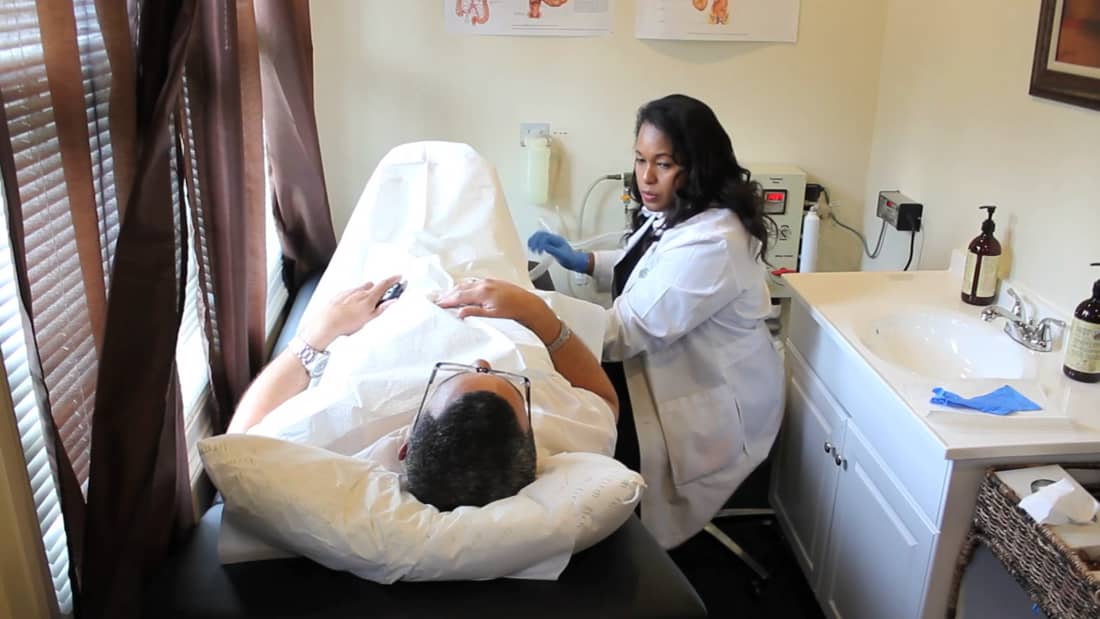Colon therapy, often referred to as colon hydrotherapy, is a natural wellness practice that focuses on gently cleansing the large intestine to support better digestion and overall health. With more people searching for safe and holistic solutions like colon hydrotherapy near me, this practice has gained significant attention in recent years. As individuals become more aware of the connection between gut health and overall well-being, colon therapy continues to hold an important place in natural care routines.
The Historical Roots of Colon Therapy

Ancient Use in Traditional Healing Systems
The practice of cleansing the colon is not new—it dates back thousands of years. Ancient Egyptians were among the first civilizations to recognize the importance of bowel health, using herbal infusions and water-based methods to cleanse the body. Traditional Indian Ayurveda and Chinese medicine also emphasized intestinal cleansing as a way to balance energy, remove toxins, and support long-term health.
From Tradition to Modern Natural Care
In the early 20th century, colon therapy began to re-emerge in Western medicine as awareness of digestive health grew. Though mainstream medicine shifted focus toward pharmaceuticals, holistic practitioners continued to highlight the role of colon cleansing in natural healing. Today, colon therapy has been integrated into wellness centers, spas, and holistic clinics worldwide, supported by a growing interest in preventive health and natural detox practices.
By combining ancient wisdom with modern techniques, colon therapy has remained a trusted option for individuals seeking a natural, non-invasive way to care for their digestive system.
Detoxification and Digestive Health
One of the main reasons colon therapy remains popular in natural care is its potential to support the body’s detoxification process. Over time, waste materials, toxins, and undigested food can accumulate in the colon, leading to sluggish digestion and discomfort. Colon therapy helps gently flush out this buildup, promoting a cleaner and healthier digestive system.
A well-functioning colon also supports a balanced gut microbiome, which plays a crucial role in immunity, hormone regulation, and overall wellness. By removing unwanted waste, colon therapy may reduce bloating, ease constipation, and create an environment where beneficial bacteria can thrive.
Boosting Energy and Wellbeing
When the digestive system is overloaded, the body uses extra energy to process and eliminate waste. This can leave individuals feeling tired, heavy, or sluggish. Colon therapy helps lighten the body’s burden by improving bowel efficiency and supporting nutrient absorption.
By clearing blockages and promoting smoother digestion, the body can better utilize vitamins and minerals from food. Many people report feeling lighter, more energized, and refreshed after a session. This sense of renewed vitality is one of the key reasons colon therapy continues to attract those interested in natural care and holistic wellness.
Supporting Natural Healing
Colon therapy is not just about cleansing—it also plays a supportive role in the body’s natural healing processes. In holistic medicine, a healthy gut is considered the foundation of good health. By improving digestion and reducing toxic load, colon therapy allows the body to focus more on repair and regeneration rather than waste management.
Complementing Other Natural Therapies
Colon therapy is often used alongside other holistic approaches such as detox diets, herbal supplements, acupuncture, and massage therapy. This combination helps amplify results and supports whole-body balance. Many practitioners recommend colon cleansing as a preparation step before beginning deeper detox programs or fasting, as it helps the body eliminate toxins more effectively.
For individuals seeking a natural, non-invasive method to enhance their wellness journey, colon therapy continues to serve as a trusted ally.
Why Colon Therapy Remains Popular in Natural Care

Growing Focus on Preventive Health
Modern wellness has shifted from treating illness after it appears to preventing health issues before they arise. More people are realizing that a healthy digestive system is essential for overall well-being, and colon therapy fits seamlessly into this preventive approach.
By supporting regular elimination, reducing toxic buildup, and improving gut balance, colon therapy helps maintain long-term wellness rather than offering a quick fix. Many individuals incorporate it into their lifestyle alongside balanced nutrition, hydration, and exercise as part of a proactive approach to health.
Preference for Non-Invasive Natural Methods
In today’s fast-paced world, many people prefer natural therapies that avoid the side effects of medications or invasive procedures. Colon therapy appeals to this trend because it is gentle, non-invasive, and drug-free. Instead of masking digestive issues with temporary solutions, it works with the body’s natural functions to restore balance.
Holistic and alternative care advocates often recommend colon therapy because it complements other wellness practices like detox programs, herbal remedies, and mindfulness-based stress reduction. Its alignment with natural living makes it an attractive option for individuals seeking safe, effective methods to support their health.
Backed by Personal Experiences and Testimonials
Another reason colon therapy has remained popular is the strong influence of personal stories. Many people who try colon hydrotherapy share positive experiences such as improved digestion, increased energy, and an overall feeling of lightness. These testimonials often encourage others to explore the practice for themselves.
Word-of-mouth recommendations and online reviews also play a significant role in its continued growth. In an era where people trust real-life experiences more than advertisements, hearing success stories from friends, family, or wellness communities helps reinforce confidence in colon therapy as a reliable natural care option.
Things to Consider Before Colon Therapy

Consulting a Qualified Therapist
Colon therapy should always be performed by a trained and certified professional. While the process is generally considered safe, improper techniques or unclean equipment can lead to discomfort or complications. A qualified therapist ensures the procedure is carried out with care, hygiene, and respect for the client’s comfort.
Before booking a session, it’s wise to:
-
Check certifications and training – Look for therapists who are accredited by recognized colon hydrotherapy associations or wellness boards.
-
Review experience – An experienced practitioner will be better equipped to assess individual needs and make adjustments during the session.
-
Ask questions – Don’t hesitate to ask about equipment sterilization, water filtration, and safety protocols. A professional therapist will be transparent and reassuring.
Safety and Suitability
While many people benefit from colon therapy, it is not suitable for everyone. Certain health conditions may increase risks, making it important to consult a healthcare provider before beginning treatment.
Who Should Avoid Colon Therapy
Individuals with the following conditions are generally advised to avoid colon therapy unless cleared by a physician:
-
Severe hemorrhoids
-
Inflammatory bowel diseases (e.g., Crohn’s disease, ulcerative colitis)
-
Recent colon or abdominal surgery
-
Severe heart, kidney, or liver disease
-
Pregnancy
Potential Side Effects if Done Improperly
When performed by an unqualified practitioner, colon therapy may lead to issues such as dehydration, electrolyte imbalance, or minor cramping. In rare cases, improper use of equipment could cause injury. This is why professional guidance and proper technique are crucial.
Conclusion
Colon therapy has stood the test of time as a trusted part of natural care, thanks to its ability to support detoxification, improve digestion, and encourage overall well-being. From its ancient roots to its modern-day role in holistic health, it continues to be valued by those who prefer preventive, non-invasive, and natural approaches to wellness. However, the benefits of colon therapy are best experienced when sessions are guided by skilled, certified professionals who prioritize safety and hygiene. Choosing the right practitioner ensures that the process remains safe, effective, and aligned with your health needs.
FAQs
1. What is colon therapy and how does it work?
Colon therapy, also called colon hydrotherapy, is a cleansing process where warm, filtered water is gently introduced into the colon to flush out waste, toxins, and buildup. It aims to support digestive health, detoxification, and overall wellness.
2. Is colon therapy safe for everyone?
Colon therapy is generally safe when performed by a certified professional. However, people with conditions like Crohn’s disease, ulcerative colitis, severe hemorrhoids, or recent abdominal surgery should avoid it unless cleared by a doctor.
3. What are the benefits of colon hydrotherapy?
Commonly reported benefits include improved digestion, reduced bloating, relief from constipation, better nutrient absorption, increased energy, and an overall feeling of lightness and well-being.
4. How many colon therapy sessions do I need?
The number of sessions varies depending on individual needs and health goals. Some people feel results after one session, while others may benefit from a short series of treatments combined with lifestyle changes.
5. How do I find the best colon hydrotherapy near me?
To find a reliable practitioner, search for “colon hydrotherapy near me” and look for clinics with certified therapists, positive reviews, and proper safety protocols. Always verify credentials before booking a session.
